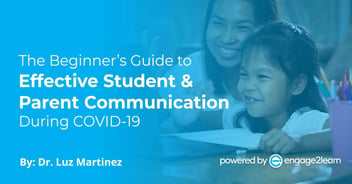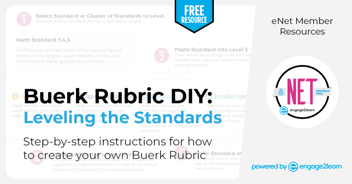Cultural Tenets: Why, What, How | engage2learn
Anyone who knows me well understands that I feel called to be leading engage2learn. Quite frankly, I did not set out to own an organization, to be an entrepreneur, or to ever leave the classroom. When I reflect upon the events that led to the founding of engage2learn, I see that it was not an accident, even though I also recognize that I didn’t plan it for myself. That is a different story altogether, which is worth my sharing at another time. What is on my mind today, however, is how thankful I am that I learned about the value of cultural tenets in the process of growing into a CEO. I wouldn’t know how to lead an organization – one that I, too, want to be part of every day – without cultural tenets!
This is not to say that I would not know how to lead. I learned about leadership from many influential people throughout my life. For example, I learned much from my parents (don’t miss our blog later this month about this topic) and from Coach Hunt, my high school basketball coach. Additionally, my early and later mentors in education like Sherrye Dotson, Marty Duncan, Danielle Stephenson, and Jeff Turner were instrumental to my growth and development for this very role. And, I also learned a lot from the pressure-cooker scenarios of my undertaking leadership positions at a young age, like teaching 19-year-olds when I was 22 and being an Assistant Superintendent when I was 35. However, now that I own an organization and am responsible for the well-being of our team, I want to do more than simply lead. I want e2L to have a culture in which we can all thrive in every aspect of our being.
Now that I own an organization and am responsible for the well-being of our team, I want to do more than simply lead. I want e2L to have a culture in which we can all thrive in every aspect of our being Click To TweetIt was after the launch of engage2learn, though, that I learned about culture and cultural tenets explicitly from reading and from our Game Changer partner organizations such as Whataburger, Google, Rackspace, TDIndustries, Steelcase and others.
Why Cultural Tenets?
There are a few alternatives for influencing the behaviors of individuals within an organization.
- If the leader does nothing, the behaviors will be guided by inherited norms of the industry or organization, as well as the behaviors that the leader(s) model. In education, educators, students, and even schools will continue to compete with each other in the manner it was designed long ago; that is, until or unless there is an intentional shift by leadership. For example, leaders who model being on time or model loose punctuality will find it permeating the organization over time. See previous blog on this topic.
Side note: There are many other inherited norms for education, namely regarding schools themselves. It is interesting to reflect upon what all has been inherited from the industrial-model system that is sustained, though senseless, today. The leader(s) can create a policy and handbook, rules for governing behavior, and then a system to enforce those policies and handbook. This is necessary in any organization, but the level of scope, detail, and enforcement determine if the organization becomes a culture of compliance and bureaucracy. If policy and rules are the primary methods for guiding behavior, then people will choose to follow the rules and typically no more or less than that.
- The leader(s) can choose to create cultural tenets based on beliefs and values that guide the behavior of an organization. This set of professional ethics and ideals thus becomes the standard, and people within the organization have a choice to make if those tenets are not aligned to their personal values and beliefs. If they are, each person will begin to exhibit leadership in their individual area of the organization, guided by tenets that match their values and using those tenets to filter conversations, interactions, and decisions.
What are Cultural Tenets?
Cultural tenets are a guide for behavior. They are descriptive enough to evoke an emotional response and are aligned to a set of beliefs. Click To TweetCultural tenets are a guide for behavior. They are descriptive enough to evoke an emotional response and are aligned to a set of beliefs. They are unique to each organization and can be applied universally across the departments within an organization to every individual. Click on the logos below for examples of cultural tenets for several organizations:
Want to know more about creating Cultural Tenets?
We have a concisce, collaborative, and effective process for doing so. Just comment below or reach out to me personally! In the meantime, read on for the ways that we use cultural tenets at engage2learn.
- Create a list of interview questions based on the cultural tenets and scenarios.
- Insert opportunities in your working interview process for people to encounter situations where the cultural tenets would come into play and assess them.
- Be explicit with recruits about what each tenet means and ensure people are using them as a guide to determine if they are a good match for the organization.
- Create stories about the cultural tenets in action within the organization to further clarify and highlight behavior aligned to them. See an amazing example from Whataburger here!
- Create a recognition system aligned to the cultural tenets. We have an internal badging system for ours.
- Conduct an annual 360 using the cultural tenets and share the data to make decisions.
- Create scenarios involving the cultural tenets as part of professional learning and have teams debate the decisions/actions using them as a filter.
- Incorporate the cultural tenets in monthly reflections shared between coaches and coachees within the organization.
- Utilize the cultural tenets in the conversations with personnel who are making decisions in conflict with them.











